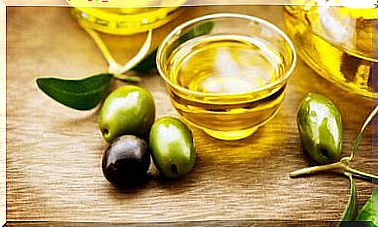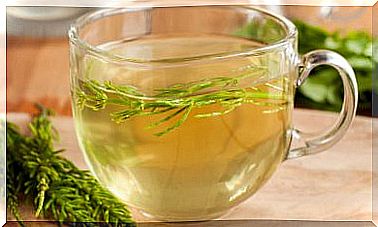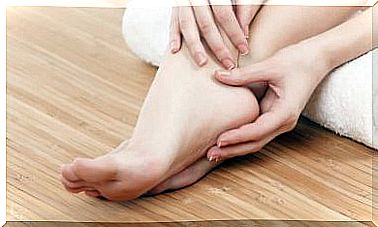What Is Onion Juice Used For?
Have you ever wondered what onion juice is used for? Although there are many ways to take advantage of the properties of this vegetable, its natural juice concentrates interesting properties that are worth taking advantage of. In the following space we share them in detail.
Fun facts about onion
The onion, whose scientific name is Allium cepa , comes from central Asia and belongs to the liliaceae family. Due to its strong flavor, it is usually relegated to a mere seasoning for different recipes. However, as research published in Critical Reviews in Food Science and Nutrition points out , it also has components for medicinal purposes. The most prominent are:
- Allicin , a component known for its anti-inflammatory and antioxidant properties.
- Minerals such as sulfur, phosphorus, potassium, and magnesium
- Vitamins C, E, B6 and folic acid.
- Dietary fiber.
- Flavonoids
- Phytosterols
- Saponins
Among other things, it should be noted that it is attributed antiplatelet properties, antithrombotic activity, antiasthmatic and antimicrobial activity.
How to prepare onion juice?
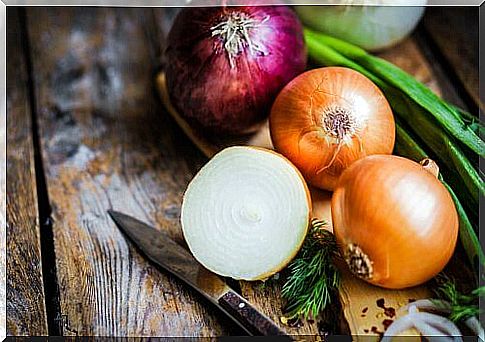
The preparation of onion juice is quite simple. You just have to get several fresh onions, depending on how much you want to prepare. In this case we suggest you use two or three units.
Ingredients
- 2 or 3 medium onions
Utensils
- A sharp knife
- A juice extractor or blender
- Glass container for pouring juice
- A suitable strainer for the container
Preparation
- Cut off both ends of the onions and peel off the outer layer.
- Afterwards, wash the onions very well
- Cut them into six pieces.
- Add the pieces to the juicer or blender and process for a few minutes.
- Finally, strain the juice and pour it into the container.
What is onion juice good for?
Although onion is often said to have important health benefits, onion juice has been used primarily to promote hair health. Specifically, for decades it has been used as a supplement to combat hair loss and other common problems such as dandruff.
In fact, as suggested by a study published in The Journal of Dermatology , the topical application of this juice can contribute to the treatment of alopecia areata, promoting healthy hair growth. Now, why does it benefit the hair? how does it work?
First of all, it is important to make it clear that onion juice should not be considered a cure for conditions such as alopecia or excessive hair loss problems. Despite studies, the evidence for its effects remains limited and does not prove that it can cure.
However, it can be used as a complementary treatment to stimulate and protect hair growth. It may also be useful for dandruff, thinning hair, dry hair, or premature graying.
The reasons why it can be useful against these hair conditions are mainly attributed to its sulfur content. This mineral is key for the growth of hair strands and optimal collagen production.
Among other things, popular belief suggests that massaging onion juice into the scalp can help improve circulation to the area. However, this has not been proven through scientific research.
How do you use onion juice?
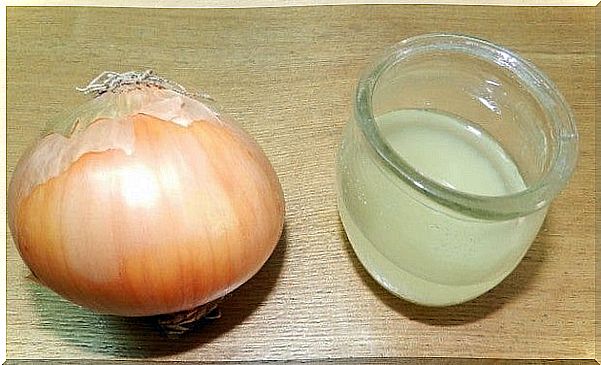
In most cases, topical application of onion juice is safe. However, since some have allergies, it is best to do a small test of the remedy before using it in its entirety. If there is no redness or discomfort after a couple of minutes, it can be used without problem.
Although the juice can be applied on its own, the recommendation is to combine it with ingredients such as aloe vera or coconut oil. These reduce the caustic effect that the onion can produce on the skin. In addition, they are hydrating and provide extra nutrients.
- Once you have the onion juice ready, separate the hair into strands and rub the treatment.
- Let it act for 10 to 15 minutes, and rinse.
- Repeat its use 2 times a week.
To end
It is important to mention again the importance of using appropriate treatments against alopecia or other hair problems. Although natural remedies are useful as a supplement, it is best to first consult a dermatologist or doctor.


